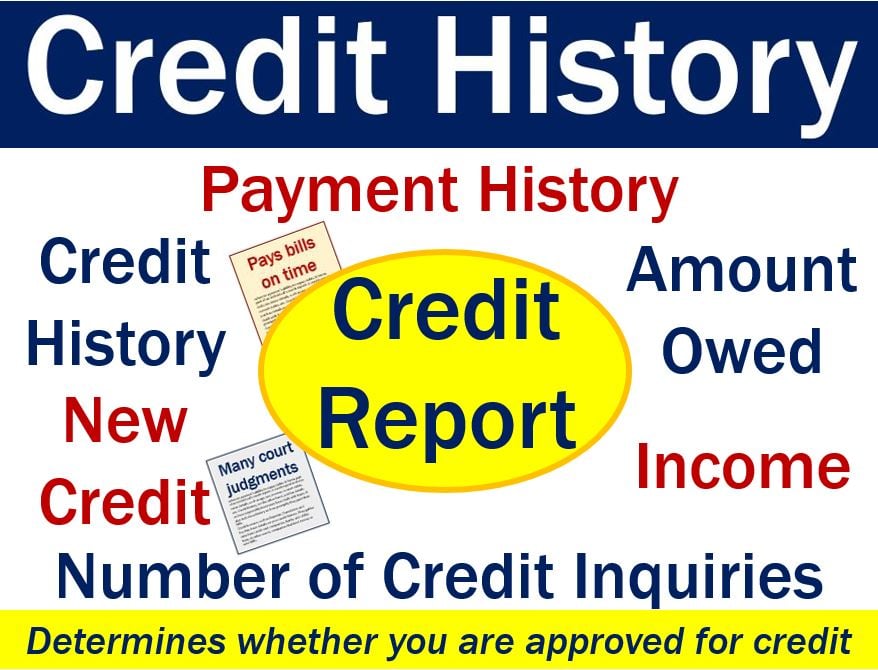Credit History refers to a person’s ability to repay debts. It forms part of an individual’s credit report. A credit report includes more details, such as age, sex, income, current debts, etc. Credit history, on the other hand, just has details on how responsibly borrowers have dealt with loans. It also includes a history on how promptly they paid their bills.
This history serves as a vital financial fingerprint, often starting with an individual’s first credit card or loan, which lays the groundwork for future credit assessments.
Credit bureaus, such as Experian, TransUnion, and Equifax, have details on your credit history. They gather data from credit card companies, banks, and utility firms. In other words, companies that lend money or send bills.
An algorithm containing a person’s history and other data forms part of a credit report. The report predicts how responsibly an individual would pay off a debt.
A person’s credit history can influence other financial opportunities and terms, such as insurance rates and employment eligibility, reflecting its importance beyond mere creditworthiness.
Credit history – credit score
In many countries, agencies give the applicant a credit score. People with high scores are more likely to pay off their debts properly compared to those with low scores.

When somebody fills out a credit application form, a credit bureau receives the details. The bureau matches the name, address, and other identifying data with its own data.
The lender then looks at the credit report the bureau sends and determines what the applicant’s creditworthiness is. In other words, how likely the applicant is to pay back the debt according to the stipulations of the contract.
The lender subsequently determines whether to approve the loan and under what terms.
Loan applicants’ credit histories help determine their ability or willingness to repay a debt. If they paid bills and installments on time, lenders are more likely to offer them a loan.
Your history contains the following information:
- how many credit accounts you have had,
- the types of credit accounts you have had,
- when each account was opened (and closed),
- how much you owe,
- the amount of available credit you have used,
- how promptly you paid your bills, and
- the number of credit inquiries there have been.
Video – What is Credit History?
This video presentation, from our sister channel on YouTube – Marketing Business Network, explains what a ‘Niche Market’ is using simple and easy-to-understand language and examples.
